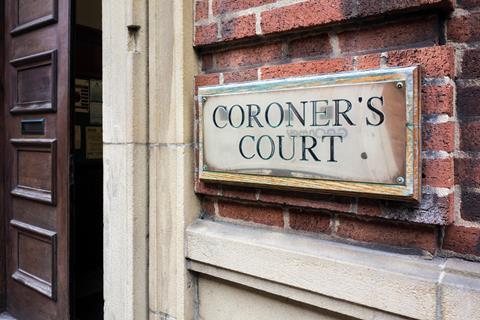An inquest should conclude within six months. However, the number lasting more than two years in England and Wales quadrupled from 378 in 2017 to 1,760 in 2022.

Of further concern is that the chief coroner’s most recent annual report, published in December, demonstrates that how long a grieving family will need to wait for an inquest to proceed really is a postcode lottery.
While statistics from the Ministry of Justice show a fall in the average time to process an inquest, scrutiny of regional data reveals that some coroner areas are displaying far lengthier delays than others. For example, in 2022 inquests proceeding in the Black Country were processed within an average of nine weeks, whereas inquests proceeding in North Lincolnshire and Grimsby took an average of 72 weeks. It is important to note that these figures are averages and not indicative of the actual number of weeks some families waited.
Potential causes
No causal breakdown is provided in the MoJ statistics, but an inquest may be delayed for a number of reasons. There may be a lack of available pathologists and/or coroners, or there could be an ongoing criminal investigation. For example, in the context of military claims one family waited more than four years for their daughter’s inquest while a criminal investigation and service inquiry ensued. Tragically, by the time of the inquest in this case others had taken their own lives in similar circumstances to the deceased.

Coroners remain fully committed to uncovering truths, and delays appear to be systemic. The chief coroner’s report suggests that the pandemic is largely responsible for existing delays to proceedings. However, it is important to consider the delays in their full context. The MoJ statistics demonstrate that inquests have been taking longer since long before the pandemic. Many coroner areas have been presenting delayed inquest figures since 2016 (after central government implemented funding cuts). Conversely, some coroner areas are exhibiting improved performance since the pandemic. It is noteworthy that in his report the chief coroner identifies a concern regarding the failure of some local authorities to provide an acceptable level of funding and/or resources to certain coroner areas. Accordingly, while the pandemic will have undoubtedly contributed to national delays, such variations by geography suggest mismanagement by councils as a more plausible explanation. Further attention should be given to the coroner areas with recurrent delays to better understand underperformance.
It seems unjust that families are being failed by an under-equipped localised service. There are 81 independent coroner areas in England and Wales. In 2021 the Commons justice committee recommended uniting coroner areas into one homogenised national system to improve the service.
Implications of delays
Delays prolong the anguish of grieving families. They are left in limbo awaiting much-needed answers. In these circumstances, the inquest process can do more harm than good.
Moreover, a delayed inquest is unlikely to uncover the same degree of reliable evidence as an inquest conducted in a timelier fashion. It is inevitable that witnesses interviewed years after the event may be vaguer in their recollection. This calls into question the credibility of witness accounts. Retrieval of reliable evidence discovered through cross-examination of witnesses is less likely.
Coroners have a duty to issue a Prevention of Future Deaths (PFD) report where an inquest raises concern that others may be at risk of losing their lives. In some instances, this mechanism saves lives. However, where an inquest is delayed, so too is the issuing of a PFD report, and in the intervening period lessons are not learnt and lives may be lost. It is devastating for families who have lost a loved one to hear of others losing their lives in the same or similar circumstances because organisations have not reflected on changes that need to be made.
In conclusion, the cause of existing delays in the coronial system cannot be solely attributed to the pandemic. The underlying cause could well be resource/funding-led, given that some coroner areas are better equipped to conduct more timely inquests than others. Increased scrutiny of underperforming coroner areas would help us to better understand the nature of delays. Alternatively, establishing a homogenised national coroner’s service could prevent further regional disparities.
It seems clear that the questionable integrity of evidence is jeopardising the proper administration of justice. Urgent action must be taken to address the delays exposed in the chief coroner’s report.
Jennifer Ellis is a solicitor in Bolt Burdon Kemp’s specialist military claims department































No comments yet